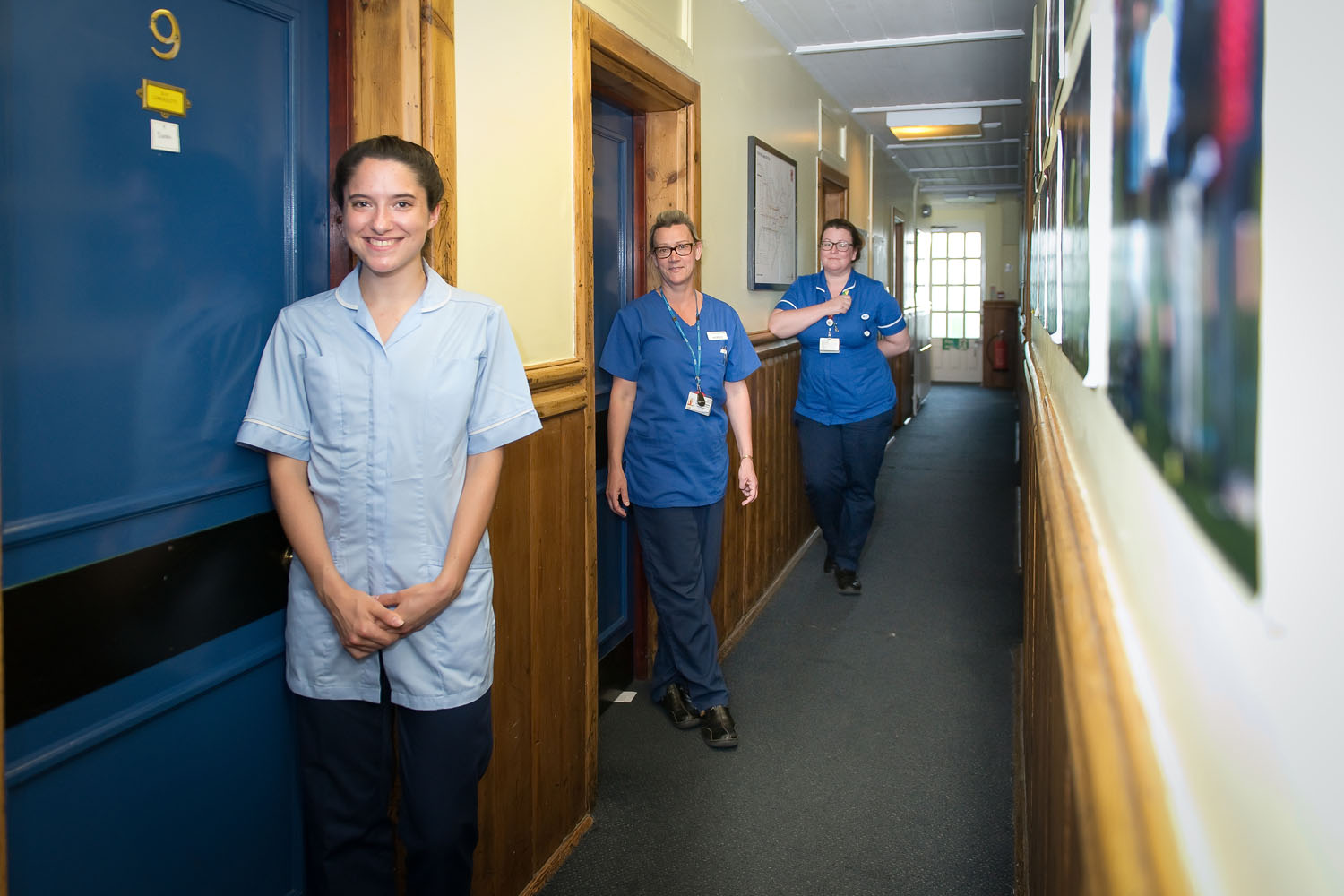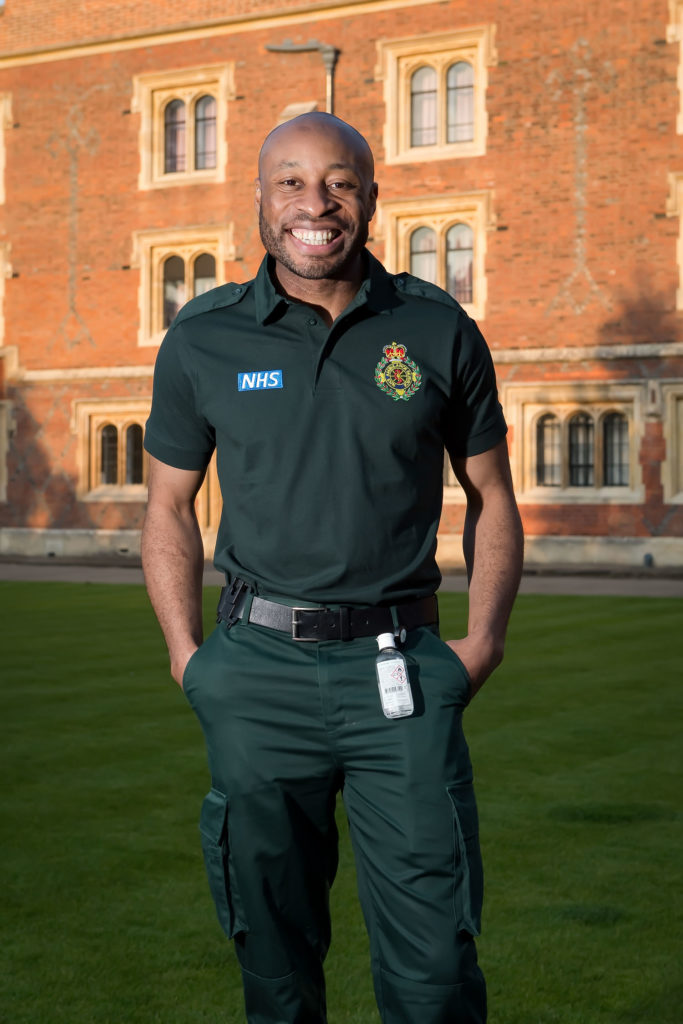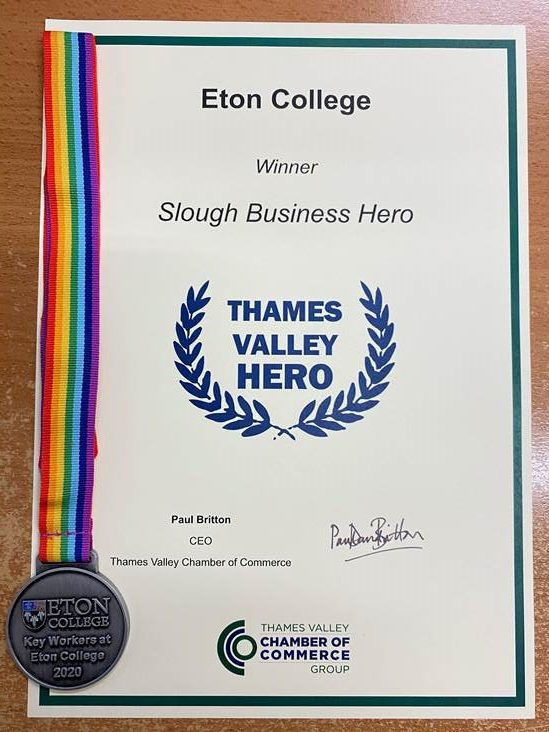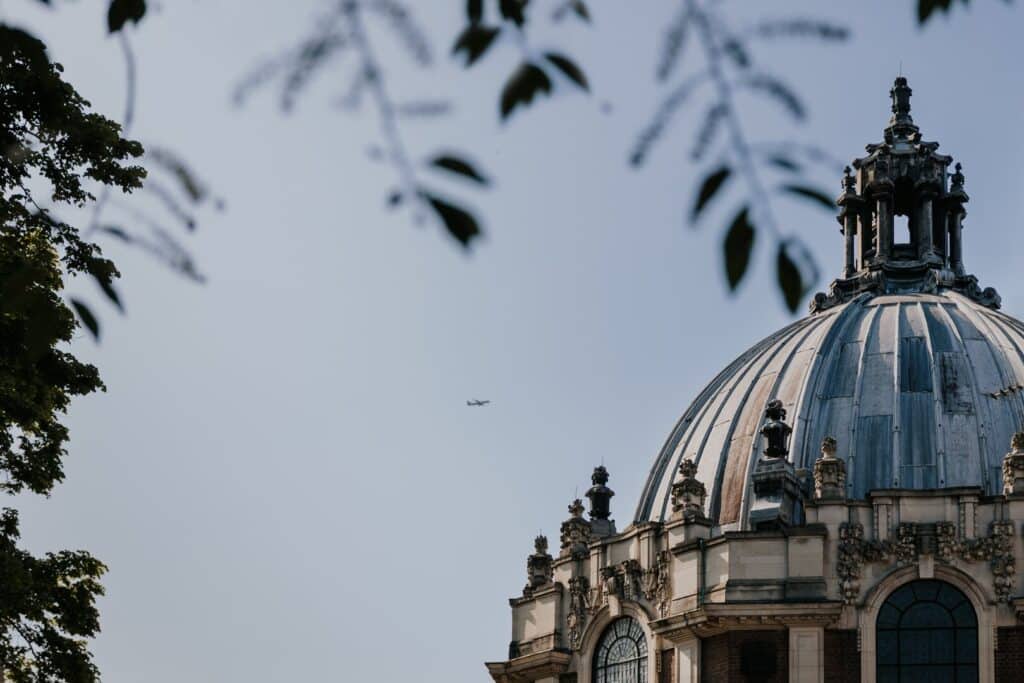Eton has been awarded a ‘Thames Valley Hero’ award for its outreach work and support of key workers during the first stage of the Coronavirus pandemic. Press Officer Jakub Biszczanik interviewed Mr Highy, who supervised the accommodation and catering programmes alongside Amy Cross, to find out more about their work. In this new period of lockdown, with students filling the corridors and boarding houses once again, Eton’s provision has had to adapt and it is the ideal time to reflect on how meaningful its efforts were during the spring and summer.
What is your current role at Eton?
I came to Eton in 1984, and prior to that I worked in the hotel industry. When the programme for key workers was launched I was able to recall some of the routines of the hotel industry. At first, I was involved in catering at Eton, however I’m now in charge of the summer programmes and I also supervise all of the work done to try and enable community access to Eton’s facilities when they’re not being utilised by students.
We were very lucky to secure food from an airline company that would have otherwise been wasted due to the mass grounding of flights. As a result of this we had real variety available for our key workers, ranging from halal to gluten-free and vegetarian options.
Mr Highy
Could you tell us more about the key worker programme?
When the headmaster decided to offer the college’s resources to key workers, many of whom were looking to live apart from their families in order to continue their work in hospitals and the community, we realised we would need to provide accommodation and services like catering and laundry. Housemasters and Dames were approached, and at the peak of the programme we had four boarding houses (which normally house 50 boys each) that acted as homes for our key workers.
After incredible effort from the Buildings Department (who emptied boys’ rooms) and the boarding house staff (who cleaned both rooms and communal areas), we were able to welcome our first guest on the 30th of March.

total number of key workers accommodated across four boarding houses
Of course, we had to abide by ever-changing guidance, and everything was aimed at minimising the spread of the virus and keeping people safe. Thus, we bought washing machines, dryers, microwaves and other appliances which were made available to key workers in our houses. The Security Department acted as receptionists, checking in guests and showing them to the houses, and Bekynton (catering) staff supplied regular meals and snacks as guests arrived and departed depending on their shift times.
We were very lucky to secure food from an airline company that would have otherwise been wasted due to the mass grounding of flights. As a result of this we had real variety available for our key workers, ranging from halal to gluten-free and vegetarian options.
Some guests only stayed for a couple of days and some stayed with us for the entirety of the programme, which began in earnest in early April and ended in late June. Key workers ranged from doctors and paramedics to police officers and pharmacists, and when we said goodbye to our last guests we had accommodated a total of 220 key workers accommodated across four boarding houses, who were supported by a team of 50 college staff.
Eton was recently awarded a ‘Hero of Slough’ award for its efforts to house and help key workers during the pandemic. Could you tell us more about the award?
The Thames Valley Chamber of Commerce contacted us recently as, unbeknownst to us, we had been nominated for and subsequently awarded a ‘Thames Valley Hero’. This is a new award, specifically created for the pandemic, which celebrates organisations that helped their communities throughout the COVID-19 crisis.
This kind of award is rarely awarded to a school and shows how Eton made a huge difference to its community.
What are your plans for outreach work in the future, given the college’s commitment to outreach in the ‘Eton 2020’ new social vision?
Eton 2020 is committed to widening access, so I’m currently working with Mr Arbuthnott (Deputy Head, Partnerships) to create more summer school opportunities at Eton for state school students. I’m also working with Mr Saunders to try and make our sports facilities more accessible to those for whom it could make a huge difference.
Many thanks to Mr Highy for conducting this interview.





